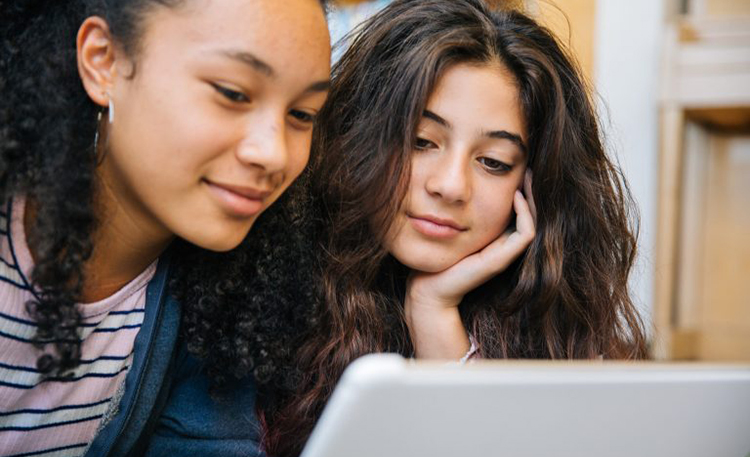
The nation’s K-12 school libraries are hurting. Although the student population is rising in many districts, the number of librarians and media specialists dropped by nearly 20 percent from 2000 to 2015. Budgets are being reduced and some schools are no longer able to afford their school librarians, or are simply closing their libraries altogether. The cuts are particularly deep in underserved communities.
Controlled Digital Lending (CDL), the digital equivalent of traditional library lending, holds the promise of broadening access to knowledge for public school libraries, according to Lisa Petrides, PhD, founder of the non-profit Institute for the Study of Knowledge Management in Education. ISKME’s focus is to provide research, tools, and training to help democratize access to education through the practice of continuous learning and collaboration. Research has shown that well-resourced libraries matter, she noted.

“When students don’t have access to school libraries, it impacts learning outcomes. It’s a dire situation in many districts across the country,” said Petrides. “Libraries and the librarians that serve them are intricately connected to pedagogy and curriculum, and are necessary to reinforce the basic tenets of learning, including problem-solving, curiosity, and exposure to new ways of thinking. The school library has been and continues to be a critical link for teaching and learning in our K-12 schools.”
In partnership with Internet Archive, Petrides has amassed a team of librarian partners to create the Universal School Library, a collection of digitized books that can serve as a lending library for those without access to a physical school library. A small grant is funding teams of school librarians working to curate 15,000 book titles. It’s a labor-intensive process selecting fiction and non-fiction titles for the core collection, while ensuring diverse viewpoints and voices are represented and included. A beta version of the Universal School Library is now online at https://archive.org/details/uslprototype, and using CDL, the project team will work with states, districts, and schools to fill in where there are gaps. When the Universal School Library is officially launched in 2020, it will encompass all genres and reading levels, and across cultural, college, and career literacy.
“This has the potential to make a high-quality curated collection available for any student,” Petrides said. “It really is a democratization issue. CDL can be transformative for equal access to education in this country.”
NOTE: Come meet Lisa Petrides and learn more about the Universal School Library when she speaks at Internet Archive’s World Night Market, Wednesday 10/23 from 5-10 PM. Tickets available here.
Pingback: Universal School Library | digithek blog
Hello,
After reading this article I really got to understand
alot of new things, it was worth the time.
Great Article. Thank you!!
To be honest this article is great example for people living in places like Pakistan Bangladesh etc, where children are deprived of studying their choice of a subject such a piece of sad news. but this article truly is a must-read for everyone. recently i started a blog on WordPress to condemn such issues.
Great! It’s so hard to meaningfully contribute to school libraries, but a careful selection for digital lending could do wonders.
Other initiatives for school libraries I found via https://libguides.ala.org/book-donations and https://publishers.org/our-markets/trade/book-donation-initiative (limited to those who distributed to more than a hundred local schools or libraries):
https://firstbook.org/about/
http://www.kidsneedtoread.org/booklist/
https://www.open-books.org/programs/book-grants/
http://www.readertoreader.org/about